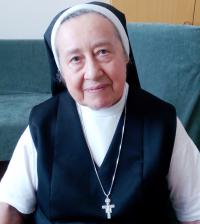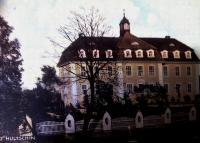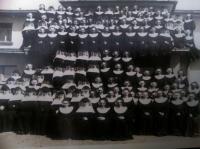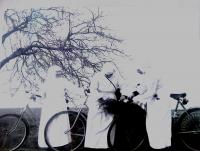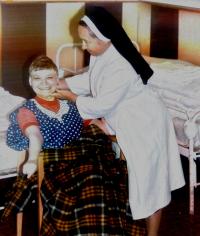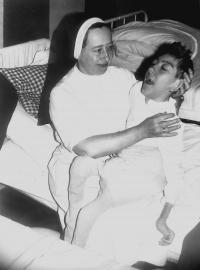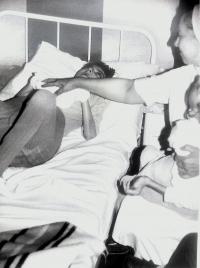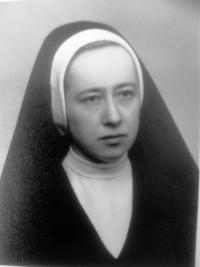This nation shall never lose its faith. Only faith can help to live through pitfalls of each era!
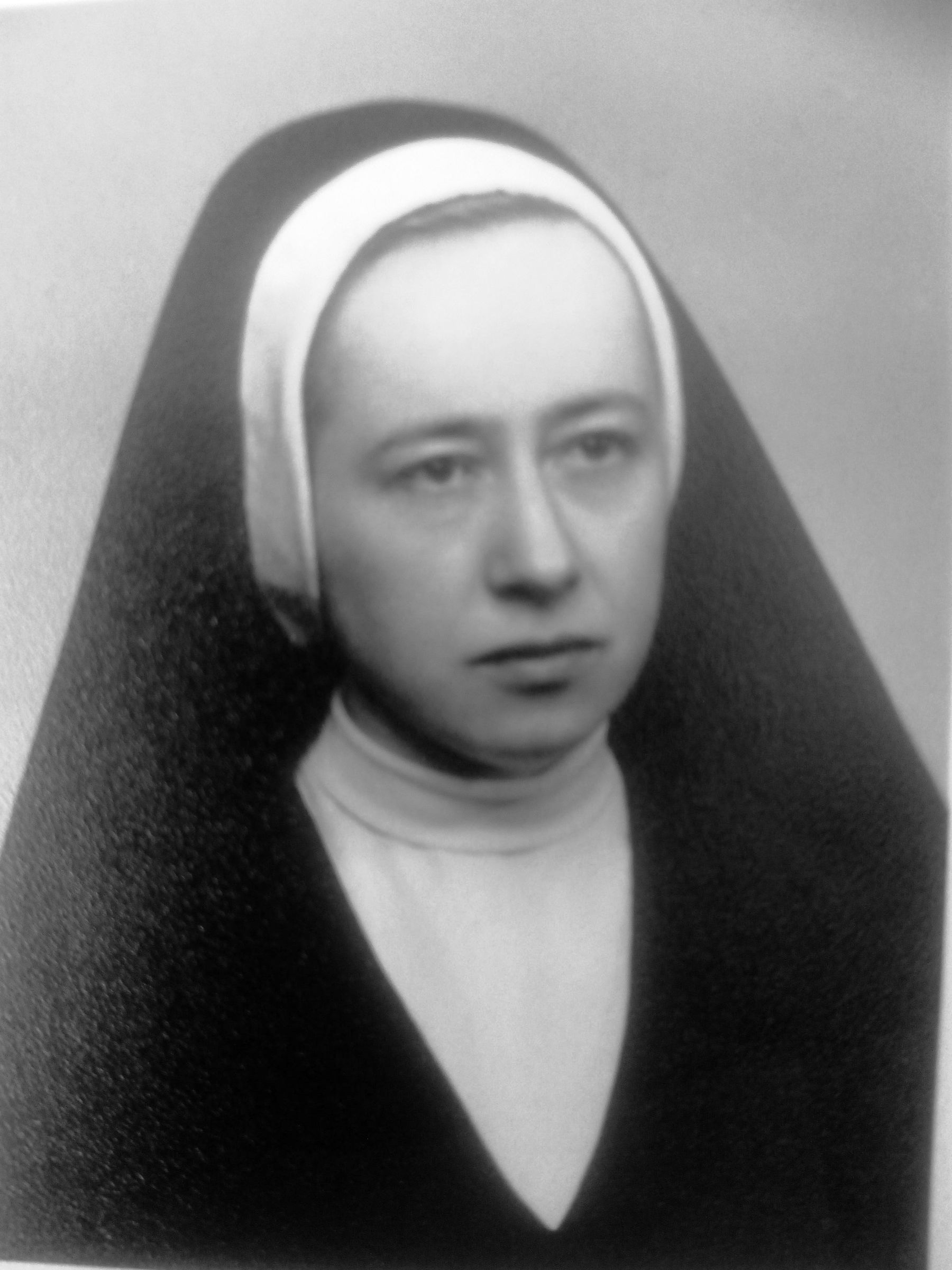
Stáhnout obrázek
Petra Mendrošová was born as Mária Mendrošová on March 26, 1933. She grew up in a modest farming family in Lučivná. She was one of five children the family had. As a child she witnessed the local events of the Slovak National Uprising and crossing of the front at the end of the 2nd World War. She attended elementary school in Lučivná and the municipal school in Svit. During a Marian pilgrimage in Levoča she made a decision to devote her life to religious ministry. In September 1948 she enrolled at the municipal school in Žilina as a candidate for entering the Congregation of School Sisters of St. Francis. During the intervention of state power against the women‘s religious orders, known as Action „R“ (Rehole - orders), she was, along with others sisters, detained on August 29, 1950 and deported to the concentration camp in Kláštor pod Znievom. Here she secretly made her vows and accepted the religious name Petra. In October 1950 she was transferred to a Bohemian town of Šumperk, where she lived in former German camp for prisoners of war. She was assigned to forced labour for the state factory Moravolen, which pursued washing and processing of flax and cotton. In 1954 she was moved into a social work position at a senior house in Mnichov village, in district Vrbno pod Pradědem. Since 1961 she worked with handicapped children in a social care institute in Hlučín, where she stayed until her retirement in 1990. After the change of the regime, she helped to restore operations of the Congregation of School Sisters of St. Francis on the premises of the convent in Žilina. She also took part in establishing the Grammar School of St. Francis of Assisi in Žilina. Until today Sr. Petra Mendrošová lives her religious life in retirement.

